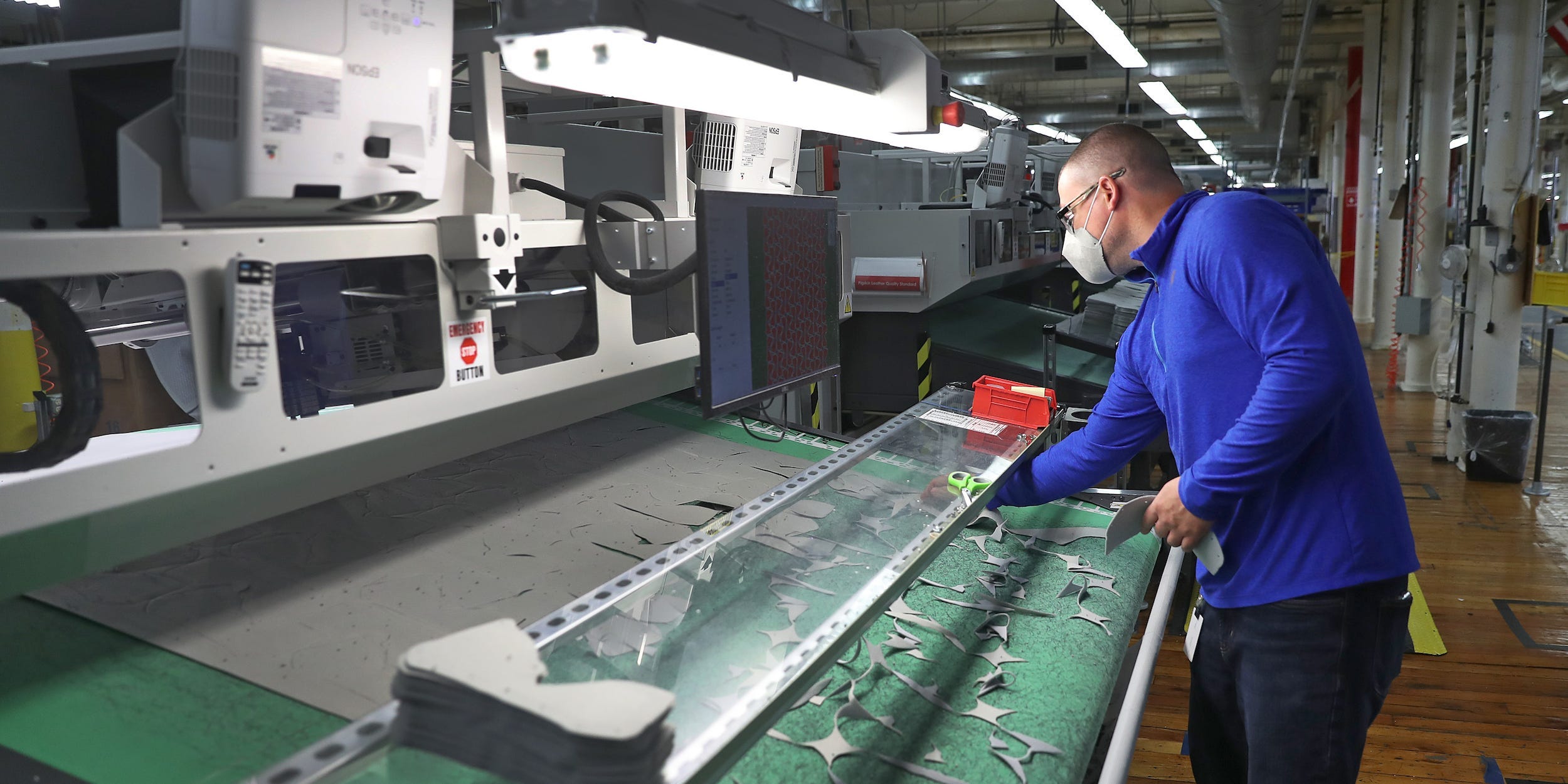
- ISM’s gauge of manufacturing-sector growth rose to its highest level in 3 years in February.
- Employment and new orders also improved, but rising prices and supply delays raised concerns.
- Manufacturers have fared relatively well through the pandemic compared to service businesses.
- Visit the Business section of Insider for more stories.
A popular gauge of the US manufacturing industry improved more than expected in February in spite of supply shortages and rising costs of materials.
The Institute for Supply Management’s purchasing managers’ index for the manufacturing sector rose to 60.8 from 58.7, according to a Monday press release. The level indicates the fastest rate of growth since 2018 and notches a ninth straight month of expansion. Economists surveyed by Bloomberg expected the gauge to rise slightly to 58.9.
ISM’s index of new orders rose to 64.8 from 61.1. The Production Index climbed to 63.2 from 60.7, while a gauge of inventories fell to 49.7 from 50.8.
Readings above 50 signal expansion, while those below the threshold indicate contraction.
Of the 18 manufacturing sectors tracked by ISM, 16 reported growth through the month. Only the printing and petroleum and coal industries reported shrinking.
Manufacturers swiftly bounced back after COVID-19 froze the economy early last year. Strong activity has aided the broader economic recovery, but supply-chain constraints have kept the industry from growing even faster. An index tracking backlogged orders rose to 64 from 59.7, its highest level since 2004.
The shortage has also lifted materials prices. ISM's prices index gained to 86 from 82.1.
"We should keep in mind that high readings on supplier delivery times have been boosting the headline composite lately," Daniel Silver, an economist at JPMorgan, said. "These likely reflect supply chain disruptions and other 'negatives' rather than delays due entirely to robust demand."
Survey respondents backed up the supply concerns. One noted that a lack of workers created major delivery issues, according to the report. Others cited late shipments as the biggest risk to their continued expansion.
"While business and backlog remain strong, the supply chain is going to be stretched very thin to keep up," one respondent in the machinery sector said.
Hiring-related hurdles could improve soon. ISM's Employment Index edged higher to 54.4 from 52.6, marking a third consecutive month of growth.
A similar manufacturing metric from IHS Markit also gained. The firm's headline measure dipped from its highest level in roughly a decade, but costs rose at the sharpest rate since 2011. Selling prices accordingly rose at the fastest pace since 2008, according to a press release.
